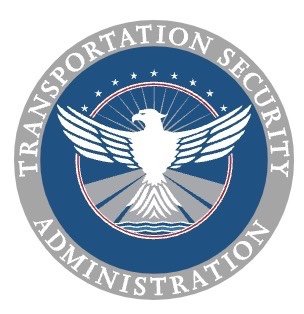MTC: Apple's UK Retreat - Navigating Client Confidentiality in a Post-ADP World 🌍🔐
/Lawyers need to be aware of foreign governments’ software security permissions when traveling abroad! ✈️
In the wake of Apple's recent withdrawal of Advanced Data Protection (ADP) from the UK, lawyers face a critical challenge in safeguarding client confidentiality. This development underscores the ongoing tension between government surveillance demands and the legal profession's ethical obligations. As tech-savvy legal professionals, we must adapt our practices to ensure robust data protection, particularly when traveling with Apple devices.
The New Landscape of Digital Security 📱💼
Apple's decision to remove ADP from the UK market stems from governmental pressure to create backdoors for law enforcement access. This move significantly impacts the level of encryption available to UK users, potentially exposing sensitive client information to increased vulnerabilities. Lawyers must now reassess their digital security strategies, especially when crossing borders with client data.
* The US government has come out in support of Apple on this issue - I don’t quite know what to make of it. 🤔
* The US government has come out in support of Apple on this issue - I don’t quite know what to make of it. 🤔
Practical Steps for Lawyers 🛡️📊
Device Sanitization: Before international travel, thoroughly sanitize your devices. Remove non-essential client data and consider using "travel-only" devices with minimal sensitive information1.
Encryption Alternatives: With ADP unavailable, explore third-party encryption tools compatible with Apple devices. Solutions like VeraCrypt or Cryptomator can provide an additional layer of security for client files.
VPN Usage: Always use a reputable VPN when connecting to public Wi-Fi networks. This practice encrypts your internet traffic, making it significantly harder for malicious actors to intercept sensitive data4.
Cloud Storage Considerations: Reevaluate your use of iCloud for storing client information. Consider alternative cloud services with robust encryption or, preferably, on-premises storage solutions for highly sensitive data.
Two-Factor Authentication: Implement strong two-factor authentication on all accounts. This adds an extra layer of security, even if passwords are compromised3.
Advising Clients on Data Protection 📝🔒
When counseling clients on data security while traveling:
Cybersecurity should be on your mind before you travel overseas! Know before you go!
Education is Key: Inform clients about the risks associated with international data transfer and storage. Emphasize the importance of encryption and cautious data handling practices.
Device Management: Advise clients to use dedicated travel devices when possible, containing only essential data. Encourage the use of strong, unique passwords and biometric authentication.
Data Minimization: Recommend that clients only carry necessary data when traveling. Sensitive information should be securely stored and accessed remotely only when absolutely required.
Secure Communication Channels: Suggest using end-to-end encrypted messaging apps for sensitive communications. Apps like Signal or WhatsApp provide a higher level of security compared to standard SMS or email.
Regular Security Audits: Encourage clients to regularly review their device and account security settings. This includes checking for unauthorized access and updating software promptly.
Crossing Borders: ADP vs. Non-ADP Countries 🛂🔐
When traveling between countries with different ADP policies, lawyers and their clients must take additional precautions:
Data Backup: Before leaving an ADP-permitted country, securely back up all ADP-protected data to a trusted cloud service or encrypted external drive.
Disable ADP: When entering a non-ADP country, disable ADP on your devices. This prevents potential conflicts with local laws and reduces the risk of forced access.
Temporary Device Switch: Consider using a separate, "clean" device when entering non-ADP countries, leaving your ADP-enabled device securely stored elsewhere.
Re-enable ADP: Upon returning to an ADP-permitted country, re-enable the feature and restore your data from the secure backup.
Client Notification: Inform clients about the potential risks and your mitigation strategies when traveling between ADP and non-ADP jurisdictions.
The Broader Implications 🌐⚖️
lawyers need to be aware of other countries security standards when advising their clients who travel internationally! 🌎 🌍 🌏
The removal of ADP in the UK sets a concerning precedent that may embolden other governments to demand similar concessions. This trend could lead to a global weakening of encryption standards, posing significant challenges to attorney-client privilege and data security worldwide.
As legal professionals, we must stay informed about these developments and advocate for policies that protect client confidentiality. Engaging with bar associations and legal organizations to take a stand against government-mandated backdoors is crucial for preserving the integrity of our legal system.
Final Thoughts: Vigilance in a Changing World 🚀🔐
The withdrawal of Apple's ADP from the UK serves as a stark reminder of the fragility of digital privacy. As guardians of client confidentiality, lawyers must rise to this challenge, implementing robust security measures and staying informed about technological developments. By doing so, we can continue to uphold our ethical obligations and protect our clients' interests in an increasingly complex digital world. Remember, in the realm of digital security, complacency is our greatest enemy. Stay vigilant, stay informed, and always prioritize the protection of your clients' sensitive information.
MTC






















